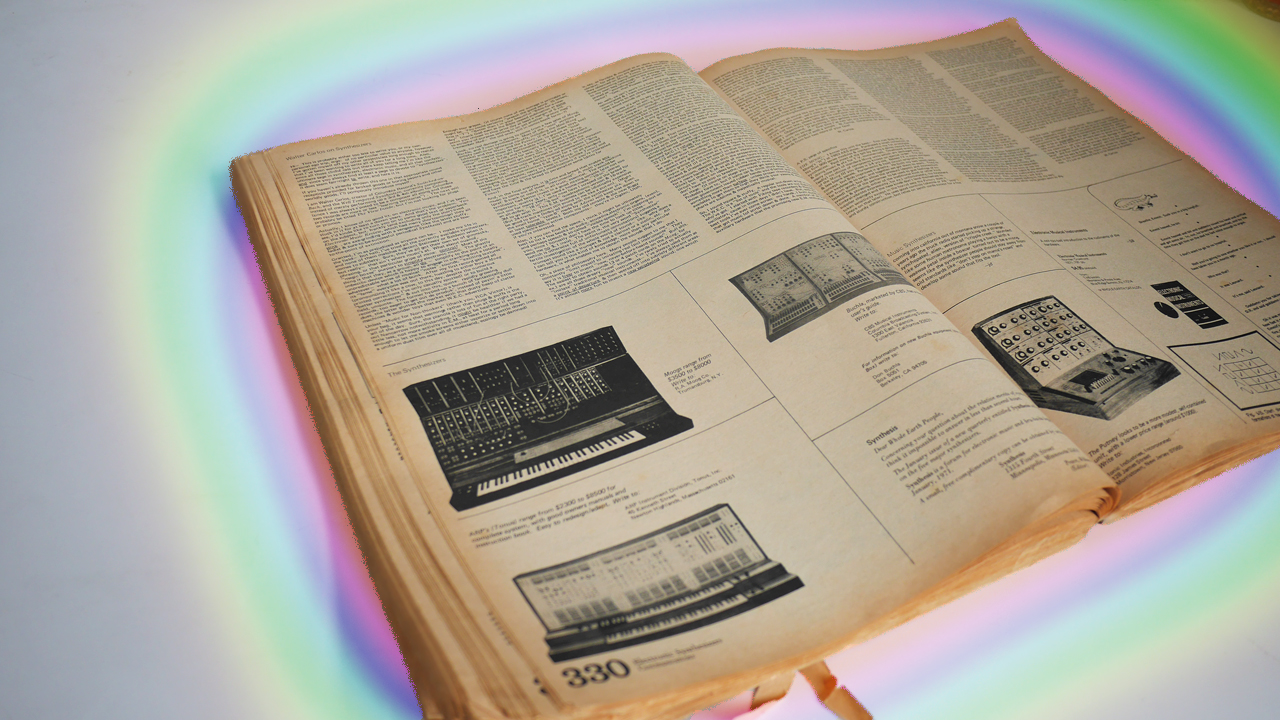ANIMAL’s Radicals Of Retrofuturism uncovers stories by the technological rebels of the past in vintage media and looks at their predictions in the context of today’s digital world. This week, we look at Wendy Carlos’ letter to the Whole Earth Catalog.
In 1971, Grammy Award winning composer and electronic music vanguard Wendy Carlos wrote a humorous and convoluted “letter” to Whole Earth Catalog criticizing nearly every aspect of the burgeoning medium of electronic music. At that time, Carlos had released two albums, which she refers to as “learning territories,” one of which outsold every other classical album before it. Later, she would go on to soundtrack A Clockwork Orange, The Shining and the original Tron. But in 1971, Carlos’ main concern was the insufficiencies of the synthesizers of the day, the people who played them and those who wrote about them. Her letter reads like a particularly snarky blog post or an early Pitchfork review. It seems the tradition of snobbery in electronic music stretches back to the beginning, as Carlos even admits herself.
Carlos has a lot of advice for people interested in the field of electronic music. “It helps to be a bit crazy,” she writes. “Being very broke helps.” In contrast to now, experimenting with electronic music in the ’70s was an incredibly expensive endeavor. Carlos strongly recommends getting a good 4-track, as most synthesizers of the day could only produce one note at a time. She adds that a used one will probably cost you nearly $3,000, which would be equal to about $20,000 today. Of course, today, all you need is a computer and an internet connection to gain access to a nearly infinite collection of synthesized noises and programs for creating electronic music. It’s hard to tell if knowing the future would have made Carlos happier or not – she wasn’t exactly pro-democratization of the medium. She writes of those who use synthesizers for “technical-snow-session[s]” (the equivalent of what we’d call experimental noise music today) “who am I to put down folks who dig the magic/mysticism of what I feel is downright quackery?”
But Wendy Carlos was not merely a critic, or a composer. She was instrumental in assisting Robert Moog in refining his earliest synthesizers. Her 1968 album, Switched-On Bach was the first commercially successful use of a Moog, and the first classical album to go platinum. In her Whole Earth piece she praises the Moog’s adaptability, but that doesn’t get the company off the hook- she describes the Mini-Moog as a “cash-in on ignorance rip-[off].” Her issue with the “simplified” designs of the newer synths that were flourishing is discussed in detail.
Most of the ‘magic boxes’ purport to simplify electronic music. The ghastly thing is that they, as a group, all do – simplify to the point of an imbecilic device which is happy to engage in cranking-out a totally unpredictable series of musical ‘notes,’ sounds, ‘exciting textures,’ whatever – what a lot of bunk.
I shudder to think what she’d have to say about something like the Buddha Machine.
In a 2007 interview with Frank J. Oteri, Carlos appears to have grown a little more open minded over the years. Living in a world where you are exposed to “everything,” she asks “how can you not be an omnivore? It’s all out there, try it, you might like it… it will broaden you. You won’t be so insular, so chauvinistic, so provincial.” Still, she still relentlessly pushes towards innovation, stepping outside your comfort zone, and avoiding whatever is “hip” in music, whether that’s too strong an alignment with the past or the experimental.
She speaks in depth about the struggle for newness in art:
I suppose that some of our human nature has a need to let off steam. As a civilization, we have to be somewhat inhibited. Without those inhibitions, we’d wreak havoc upon each other. There have to be laws, police, all that. One understands all that sort of passively. Obviously we all would like to really be free but it’s hard to know how to be free. It’s also easier to talk about being free than actually going out and try to do something constructive that’s ad hoc brand new. I can ask you as a composer to go out now and write something that’s completely different. Ha, I dare you! That’s gonna be pretty challenging. You’re going to have to think past all the things you have ever done, if you really want to be different, because inadvertently you’d probably lapse into a few of them.
Freedom is the same way. Echoes and ghosts of frustrations from the past linger within us. So now and then we feel the need to exorcise these gremlins which we’ve repressed.
Wendy Carlos is one of the most rigorous artists of the last century, holding us all accountable for our creations. Her dislike of the spotlight is legendary, and though through her writing we can discern her opinions and technical insights, learning about her personal experiences – as a trans artist or merely someone who helped shape what is now the building blocks of pop – is a little harder. But we do get one clue from her 1971 piece. “Our only hope right now?” she writes. “Pay the bills and get ourselves a nice quiet geodesic dome.”


